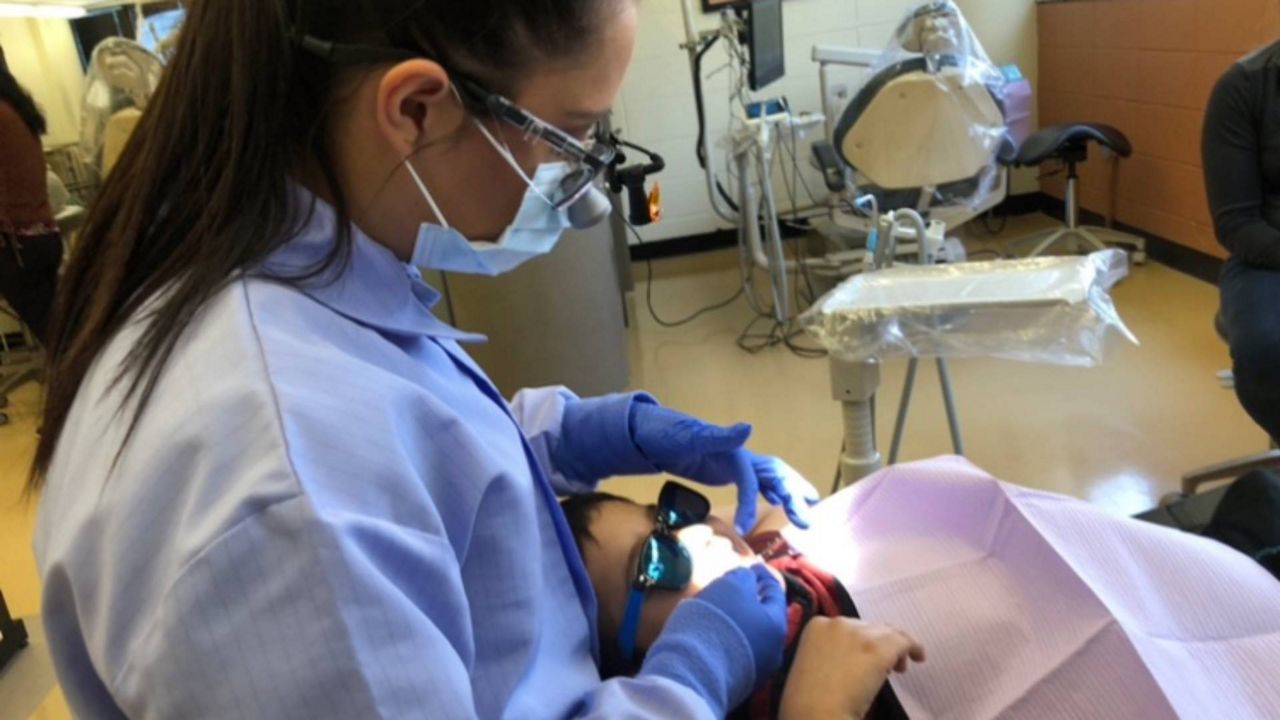A new group is recruiting volunteers to watch court proceedings in Maine as part of an effort to gather data about what goes on in the state’s legal system.
Court Watch ME is a collaboration between the Maine Drug Policy Lab at Colby College and state Rep. Charlotte Warren (D-Hallowell). The idea came about last fall when Warren met with lab director Winifred Tate and they began discussing court watch programs in other states.
“One of the ongoing challenges we have found is a lack of information and transparency in the Maine legal system,” said Tate, an associate professor of anthropology at Colby.
Although there’s no national court watch program, Warren and Tate said they looked to similar organizations in South Carolina, Massachusetts, Louisiana and Maryland to find models for what would work in Maine.
Warren, who is completing her fourth term in the Maine House and just won a seat on the Kennebec County Commission, said they have trained about 20 court watchers so far, not including Colby students who are involved in the program. At this point, the program is focused on district courts in Skowhegan, Waterville and Augusta.
As House chairwoman of the Criminal Justice and Public Safety Committee, Warren said she’s spent years listening to testimony from officials throughout the criminal justice system. But there’s little data to examine when it comes time to set policy.
She said the trained court watchers sit through court proceedings to note basic information on race, gender, citizenship status, housing needs, caregiver status and charges faced by defendants. They write down whether mental health needs are mentioned or whether substance use disorder is discussed as part of a court appearance.
“The legal system talks about people being offered treatment,” Warren said. “Let’s actually see for ourselves what’s happening.”
As part of its commitment to transparency, the group posts to Twitter. On June 8, they posted this summary: “In the past three days, we have watched 66 arraignments in Skowhegan, Augusta and Waterville. Of these, 13 were operating under the influence, and 8 were for unlawful possession of scheduled drugs. Substance use disorder was never mentioned. Treatment/diversion was mentioned once.”
Another post on June 7: “Lawyer of the Day was unable to attend, so defendants were only able to speak with a lawyer via zoom in a separate conference room. Only two people spoke with them. There is no way the lawyer would be able to advocate on behalf of the accused.”
Tate started the drug policy lab at Colby in the fall of 2018 and quickly noticed that the lack of information from the Maine courts would be a challenge. She said Maine, which is heavily reliant on paper records, is “20 years behind most other places” and is also an outlier because of the way it offers help to poor defendants.
Maine is the only state in the country that does not have a public defender system, but rather hires private attorneys to represent defendants who can’t afford a lawyer. That presents another data barrier because there’s no one central clearinghouse for information on defendants, Tate said.
Court Watch ME is getting off the ground at a time when the state’s indigent legal services system is being sued by the American Civil Liberties Union for allegedly failing to provide adequate legal services to the poor. And while lawmakers recently provided additional funds to the program — including increasing the pay for attorneys — the money allocated falls far short of covering the cost to transition to a public defender system.
Another difficulty is that 95% of cases are settled by plea deals, which means there often isn’t much of a paper trail, Tate said. Both Tate and Warren said part of their efforts will be to examine money spent on the system.
Warren said Maine consistently ranks as one of the safest states in the country, yet the incarceration rate continues to rise. Tate said a lack of affordable housing, mental health services and substance use disorder treatment has led to the “criminalization of poverty.”
“We spend far too much on arresting people and incarcerating them and not enough on data and addressing the cultural, systemic roots of these issues,” she said.
After months of data gathering, Tate said they hope to issue their first report in the fall and possibly expand the program.
Warren said the program is not meant to be adversarial and that Kennebec County District Attorney Maeghan Maloney and Justice William Stokes have met with students taking part in the program.
“This is not adversarial at all,” Warren said. “It’s transparency.”
Anyone interested in volunteering to be a court watcher can find out more at courtwatchme.org.








